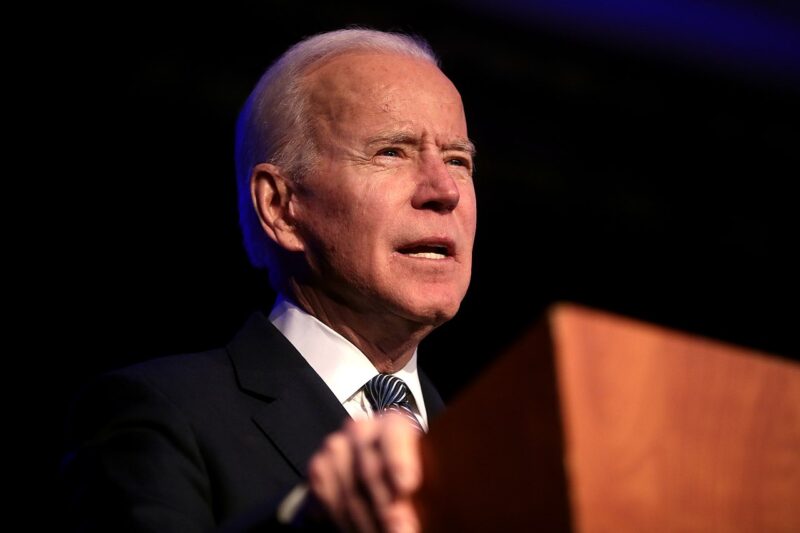On January 23rd, China flew two large formations of fighters and bombers over Taiwanese air space. Taiwan’s Defense Ministry reported 13 Chinese aircraft entering the southwestern sector of their air defense identification zone (A.D.I.Z.), marking the second day running of mainland incursions and prompting Taipei to dispatch their own fighters to survey the Chinese formations.
As defined by the U.S. Federal Aviation Administration, an A.D.I.Z. is a “designated area of airspace over land and water within which a country requires the immediate and positive identification, location, and air traffic control of aircraft in the interest of the country’s national security.”
According to Taiwan’s Defense Ministry, Chinese military aircraft incurred into the A.D.I.Z. over 380 times in 2020 alone. With the timing and structure of China’s aircraft formations in the latest incursions into Taiwan, Beijing’s intent’s intent seems to be sending a message to the new Biden administration in Washington, D.C.
President Biden is expected to maintain pressure on Beijing over a number of issues, including human rights, trade, and Hong Kong and Taiwan. On the same weekend of the incursions, the Biden administration urged Beijing to halt its acts of intimidation against Taiwan and strengthened its support to Taipei’s democracy.
U.S. State Department spokesman Ned Price stated, “We urge Beijing to cease its military, diplomatic, and economic pressure against Taiwan and instead engage in meaningful dialogue with Taiwan’s democratically elected representatives.”
The statement appears to demonstrate that the Biden administration intends to uphold its commitment to defending Taiwan and deepening U.S.-Taiwan relations. The U.S. showed strong defense commitment under the previous Trump administration through the sale of aircraft and sending senior level envoys to Taiwan. Both acts infuriated Beijing. Furthermore, Taiwan’s de facto ambassador, Hsiao Bi-Khim, was in attendance for Biden’s inauguration last week. This was the first official invitation of such a level to a Taipei representative since 1979.
In addition to supporting Taiwan, Spokesman Price said that the U.S. also aims to support other allies in the Pacific as China continues to conduct military activity throughout the region. On the same weekend as China’s incursions into Taiwan, the U.S. Navy sent an aircraft carrier strike group into the South China Sea as a symbol of unity and solidarity. While Vietnam, the Philippines, Malaysia, Brunei, and Taiwan all have overlapping claims, the Chinese government claims nearly all of the South China Sea’s 1.3 million square miles as its sole sovereign territory. China’s incursion, at the same time as the carrier group entered the South China Sea, increased tensions and caused concern in Washington.
Coming to a solution regarding Chinese incursions into Taiwan’s defense zone is immensely complicated. These airspace incursions are not isolated acts towards a single entity, but rather are linked in a web of events with ongoing tensions between not just China and the United States, but much of Asia as well. The Chinese government has yet to comment on its latest Taiwan incursions, only giving further indication of its agenda to assert control in the region by passing a new law authorizing its coast guard to fire on and destroy foreign vessels and structures on Chinese-claimed reefs and islands. The law, effective February 1st, would increase chances of escalation not only between China and the other claimants in the South China Sea, but also between it and Japan in the East China Sea.
During the announcement of the new law, the Chinese military specifically referred to long-contested, Japanese-controlled islands known in Japan as the Senkakus and in China as the Diaoyus. Chinese naval vessels have entered the waters surrounding the islands, drawing condemnation from Japan. The U.S. has already stated that the contested islands are within jurisdiction of the U.S.-Japan mutual defense treaty, obligating U.S. response to any Chinese action against Japan.
According to the Financial Times, “the rising importance attached to tackling a range of challenges from China” has convinced President Biden to create a new position in the National Security Council. Biden will be appointing veteran policy expert Kurt Campbell to focus on the coming challenges from China as America’s Indo-Pacific Co-Ordinator.
With its new law giving China’s continued incursions and territorial claims the potential to be followed by force, it is paramount that the Biden administration engages with Xi Jinping’s government to find a resolution through diplomatic means. With the new Co-Ordinator position set to further focus in U.S. commitment in Asia, a diplomatic solution is possible.


